The English people--it was probably thus that Temple argued--will not bear to be governed by the unchecked power of the Sovereign, nor ought they to be so governed. At present there is no check but the Parliament. The limits which separate the power of checking those who govern from the power of governing are not easily to be defined. The Parliament, therefore, supported by the nation, is rapidly drawing to itself all the powers of Government. If it were possible to frame some other check on the power of the Crown, some check which might be less galling to the Sovereign than that by which he is now constantly tormented, and yet which might appear to the people to be a tolerable security against maladministration, Parliaments would probably meddle less; and they would be less supported by public opinion in their meddling. That the King's hands may not be rudely tied by others, he must consent to tie them lightly himself. That the executive administration may not be usurped by the checking body, something of the character of a checking body must be given to the body which conducts the executive administration. The Parliament is now arrogating to itself every day a larger share of the functions of the Privy Council. We must stop the evil by giving to the Privy Council something of the constitution of a Parliament. Let the nation see that all the King's measures are directed by a Cabinet composed of representatives of every order in the State, by a Cabinet which contains, not placemen alone, but independent and popular noblemen and gentlemen who have large estates and no salaries, and who are not likely to sacrifice the public welfare in which they have a deep stake, and the credit which they have obtained with the country, to the pleasure of a Court from which they receive nothing. When the ordinary administration is in such hands as these, the people will be quite content to see the Parliament become, what it formerly was, an extraordinary check. They will be quite willing that the House of Commons should meet only once in three years for a short session, and should take as little part in matters of state as it did a hundred years ago.
Thus we believe that Temple reasoned: for on this hypothesis his scheme is intelligible; and on any other hypothesis his scheme appears to us, as it does to Mr. Courtenay, exceedingly absurd and unmeaning. This Council was strictly what Barillon called it, an Assembly of States. There are the representatives of all the great sections of the community, of the Church, of the Law, of the Peerage, of the Commons. The exclusion of one half of the counsellors from office under the Crown, an exclusion which is quite absurd when we consider the Council merely as an executive board, becomes at once perfectly reasonable when we consider the Council as a body intended to restrain the Crown as well as to exercise the powers of the Crown, to perform some of the functions of a Parliament as well as the functions of a Cabinet.
We see, too, why Temple dwelt so much on the private wealth of the members, why he instituted a comparison between their united incomes and the united incomes of the members of the House of Commons. Such a parallel would have been idle in the case of a mere Cabinet. It is extremely significant in the case of a body intended to supersede the House of Commons in some very important functions.
We can hardly help thinking that the notion of this Parliament on a small scale was suggested to Temple by what he had himself seen in the United Provinces. The original Assembly of the States-General consisted, as he tells us, of above eight hundred persons. But this great body was represented by a smaller Council of about thirty, which bore the name and exercised the powers of the States-General. At last the real States altogether ceased to meet; and their power, though still a part of the theory of the Constitution, became obsolete in practice. We do not, of course, imagine that Temple either expected or wished that Parliaments should be thus disused; but he did expect, we think, that something like what had happened in Holland would happen in England, and that a large portion of the functions lately assumed by Parliament would be quietly transferred to the miniature Parliament which he proposed to create.















